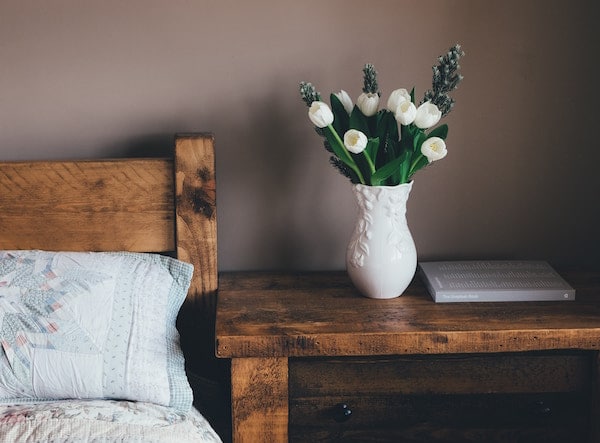
It seems silly to think of decluttering as a self-care practice. In fact, it probably feels like the complete opposite. After all, decluttering feels like a chore, and who wants to do chores? After all, chores often feel like a struggle and a nuisance. And isn’t self-care supposed to feel, well, carefree?
But here’s the reality: For most of us a calm environment translates into a calm internal state, and chaotic surroundings create a chaotic frame of mind (and heart).
For example, after a long day of work or school, you walk through the door, and see random items scattered on the floor, piles of bills on the table, and a closet bursting with stuff you don’t use.
How do you feel?
As Holly Blakey, owner of Breathing Room Organization, pointed out, you’ll likely feel stressed. Or, at the very least, you wouldn’t feel relaxed.
However, when we simplify our surroundings, she said, we clear our spaces and our minds of “excess that makes you feel stuck and unsettled.”
Also, when we surround ourselves with items we love, we naturally feel better, said Kait Schulhof, founder of A Clean Bee, “I can’t think of a better form of self-care than that!”
Author Shannon Kaiser, who lived out of a single suitcase while traveling the world for almost an entire year, said that decluttering “gives you a focused approach to choose what matters most in your life.” In other words, in addition to calm, decluttering gives you clarity.
So how can you declutter and create a nourishing space for yourself?
Here are four suggestions:
- Start small (with a big impact). According to Blakey, the key is to start small “in the areas that will have the most impact on your life [and that] cause frustration when you can’t find things.” This might be your desk or medicine cabinet or key drawer. She suggested taking everything out of that space, and getting rid of anything that you don’t use, isn’t working, or is expired. Then sort like with like, and give those items a home (e.g., a small basket or bin).
- Create a schedule. Schulhof understands that decluttering can feel intimidating to most of us. “This is likely because people are used to HGTV and TLC shows that show before/after versions of spaces in a matter of 30 minutes—you don’t have to declutter your home in one day!” Instead, she suggested creating a schedule that works for you and your family. Start by listing the categories you’d like to declutter, such as clothes, makeup, books, paper, kitchen tools, and kids’ toys. Then put each category on your calendar. You might give yourself a few weekends, one week, or one day to tackle your closet. Again, this is totally up to you.
- Use the 20/20 rule. When you’re not sure about an item (and think you should save it just in case), Schulhof suggested using The Minimalists 20/20 rule: “If you know that you can find a replacement item for less than $20 in less than 20 minutes, then let it go!”
- Keep what feels good. For example, if you’re cleaning out your closet, donate the dress that’s three sizes too small, said Kaiser, author of the book Joy Seeker: Let Go of What’s Holding You Back So You Can Live The Life You Were Made For. Keep only the clothes (and other items) that inspire, uplift, and energize you. Keep what’s comfortable, and/or what feels beautiful to you.
“When we declutter, we let go of physical things that have been energetically blocking us,” Kaiser said. “When we remove them from our life, we create space for more balance and peace.”
That’s the ultimate form of self-care, she said, because you are showing up for yourself. Because you are creating a space that serves you and the kind of life you’d like to live.
Photo by Annie Spratt on Unsplash.
Decluttering Can Be a Nourishing Self-Care Practice
APA Reference
Tartakovsky, M. (2019). Decluttering Can Be a Nourishing Self-Care Practice. Psych Central. Retrieved on November 8, 2019, from https://blogs.psychcentral.com/weightless/2019/11/decluttering-can-be-a-nourishing-self-care-practice/